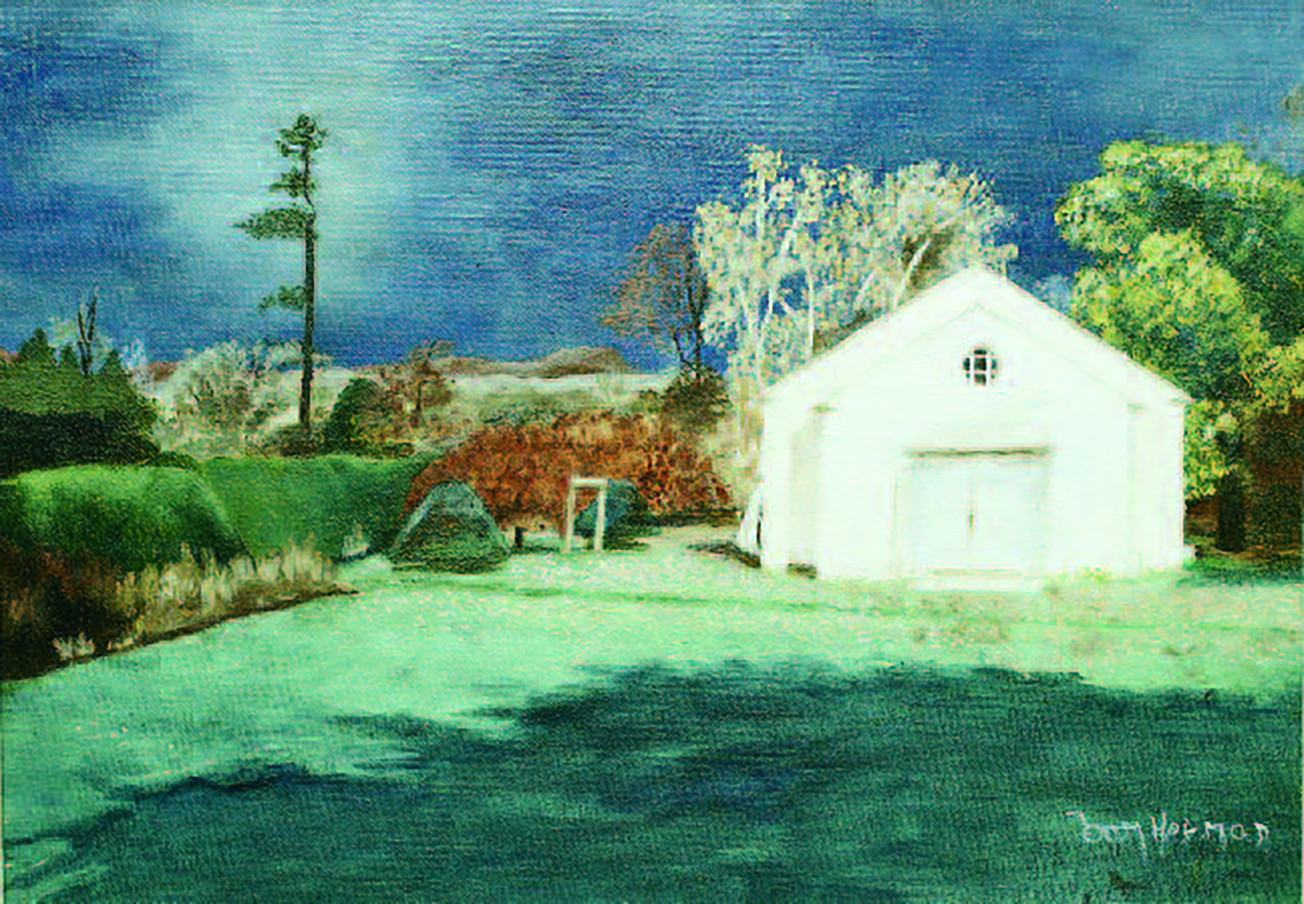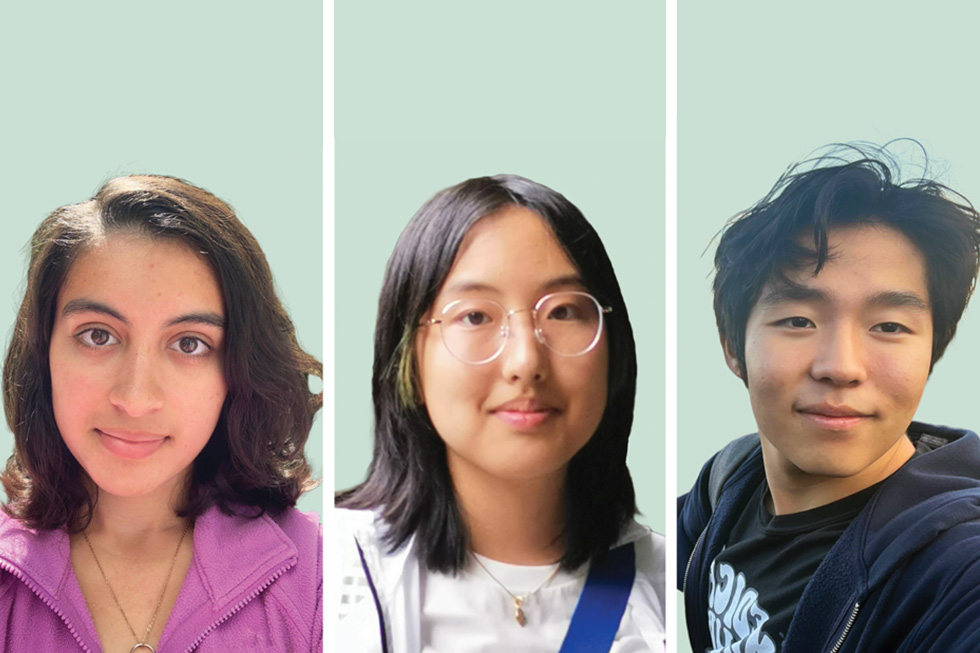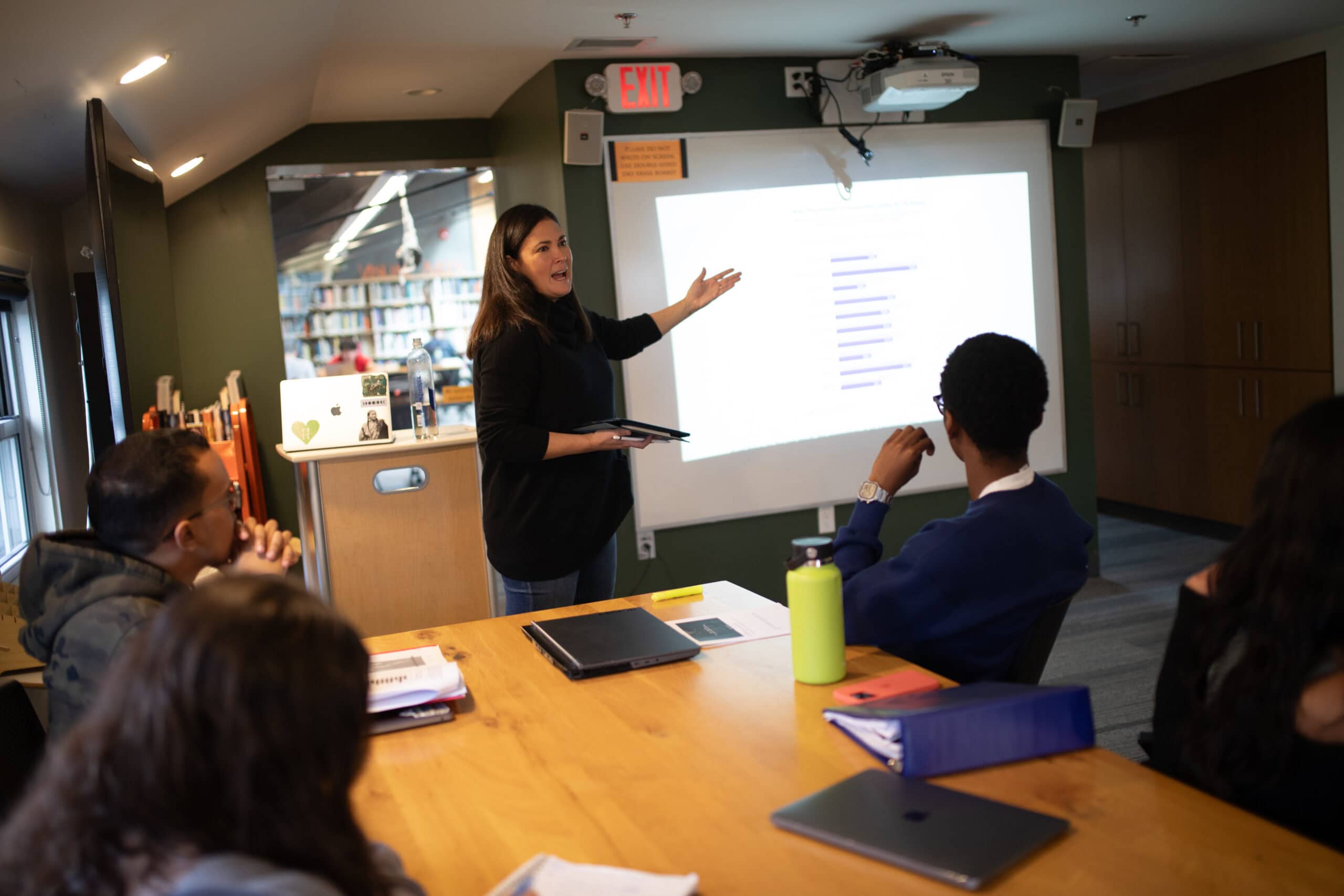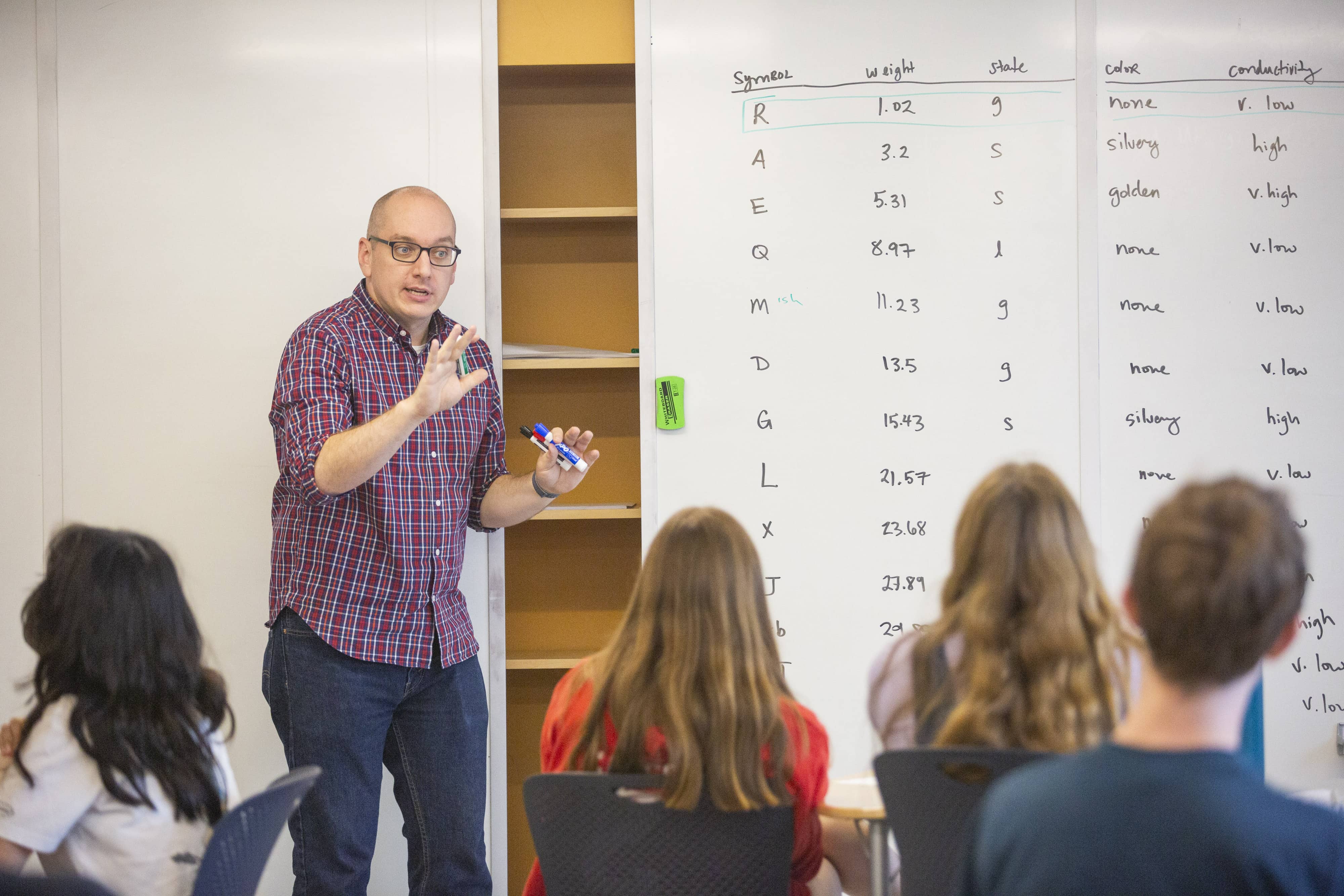The Story Behind CA’s Joan Shaw Herman Distinguished Service Award

On April 22, 2022—Concord Academy’s 100th birthday—the CA community bestowed on Dr. Adnan Zubcevic ’75 the Centennial Joan Shaw Herman Distinguished Service Award for his lifetime of advocacy for immigrants and refugees and care for their mental health. This award was first given to Joan Shaw Herman ’46 herself, posthumously, in 1976, when the Alumnae/i Association established her as an inspiring figure for generations to come.
Herman, who was paralyzed after contracting polio the summer after her graduation from CA, continued to express herself artistically and worked to improve the lives of other individuals with physical disabilities. Her story speaks to the power that resilience, generosity, and an enduring desire to make life better for others can have, and why this award is so important at Concord Academy. Each year this award is presented, the CA community holds up a new example of what it means to honor CA’s mission as we each cultivate empathy, integrity, and responsibility within ourselves to build a more just and sustainable future.
Joan Shaw Herman’s Story
Who was Joan Shaw Herman ’46? When this young woman graduated from Concord Academy, her greatest talents were writing and painting, and she had a promising future. She had been accepted at Wellesley College and was looking forward to first spending the summer working at an American Friends Service Committee Camp. And she did that wholeheartedly, throwing herself into digging ditches and cutting down trees. Never wanting to waste a minute of living on sleep, Joan stayed up late each night, talking with her fellow workers, and, unfortunately, swimming in a contaminated river. Despite her youth and bountiful energy, she wasn’t immune to disease; by the end of the summer, polio had left Herman paralyzed from the neck down.
Instead of matriculating at Wellesley, she entered the New Britain Memorial Hospital for the Chronically Ill in Connecticut. There she lived for most of her life thereafter, confined within an iron lung, a full-body-encasing tank respirator that was necessary to support her breathing. But Herman used her confinement for religious study. What she might have viewed as the end of her life prompted her to discover new adaptations as well as to turn her attention to improving the lives of others. As she said, she believed that “selfishness and self-indulgence are our only true limitations and prisons.”
After she was hospitalized, Herman began taking a correspondence course in journalism and creative writing. Using a stick held between her teeth, she learned to type her own essays, poetry, and letters to friends on an electric typewriter. She similarly resumed painting, holding the brush in her mouth.
Herman left a lasting influence through her work on behalf of others with disabilities. In 1995, she founded New Horizons, a fellowship of individuals with physical disabilities, who were nevertheless devoted to adventuresome living. She later became the vice president of its board and editor of its publications. Herman and her colleagues created a program to assist fellow individuals with disabilities in leading challenging, productive, and dynamic lives—a program that eventually grew into the New Horizons residential community in Unionville, Conn., which continues to support the independence of its residents in self-directed, apartment-style living.
Herman kept in touch with Concord Academy throughout her life and often invited CA students to visit Memorial Hospital. CA also published her poems in its bulletins and magazine on several occasions, and her essays “Quiet Places” and “We Must Look Around Us in Awareness” reflect her insight and equanimity.
“Christmastide” was painted by Joan Shaw Herman ’46 and copied from a color photo taken by Elizabeth Wheeler. It was painted with a brush held in her teeth and was begun March 1959 and finished October 1960.
The Establishment of the Award
After Herman passed away in 1975, the Executive Committee of the Alumnae/i Association found a way for Herman, and her inspiring example, to live on at CA. When they established the award the following year, they specified that it would not be given for service to Concord Academy; all other criteria were left undefined. Thus, many have received the distinction for their professional work, others for volunteer service, in a variety of fields.
The Joan Shaw Herman Award testifies to a common value shared by the Concord Academy community. The alumnae/i who have received the award since Herman herself did serve as inspirations for leading lives that benefit others.
In Service of Sustainability
Since Concord Academy first honored Herman with this award, 41 individuals have been given this distinction. Each have their own remarkable life stories—stories of service to others, and, in many cases, of service to our earth. Indeed, care for people, especially underprivileged populations, and the pursuit of environmental justice are often intertwined.
As Concord Academy prepares to celebrate its 100th birthday with a focus on service and sustainability, we also recognize several alumnae/i who have received the Joan Shaw Herman Award for their work to protect and sustain our natural environment. These are just some of those individuals:
In 2000, attorney Deborah Ham ’55 received the award posthumously for her efforts to save Pinto Creek in Arizona, joining with the Sierra Club, the Audubon Society, America Rivers, and a band of concerned citizens to preserve it from copper mining, up to the hour of her sudden death in 1998.
In 2006, Victoria Post Ranney ’56 was honored for developing a planned community, Prairie Crossing in Grayslake, Ill., that actively promotes the principles of environmental protection, energy conservation, and racial and economic diversity.
In 2007, Katharine Muller Bullitt ’42 received the award for her lifelong dedication to social activism. In her work as a volunteer and a board member, she addressed a wide range of issues including civil rights, quality integrated education, women’s rights, peace and international understanding, and environmental protection of the Pacific Northwest.
In 2014, the award was given to Robin Alden ’69 in recognition of a successful new model for managing near-shore fisheries, which aligned community organizing with the latest scientific research. She observed that fishing is the “perfect meeting of environment and economics: If it is done right, it can sustain communities forever.”


